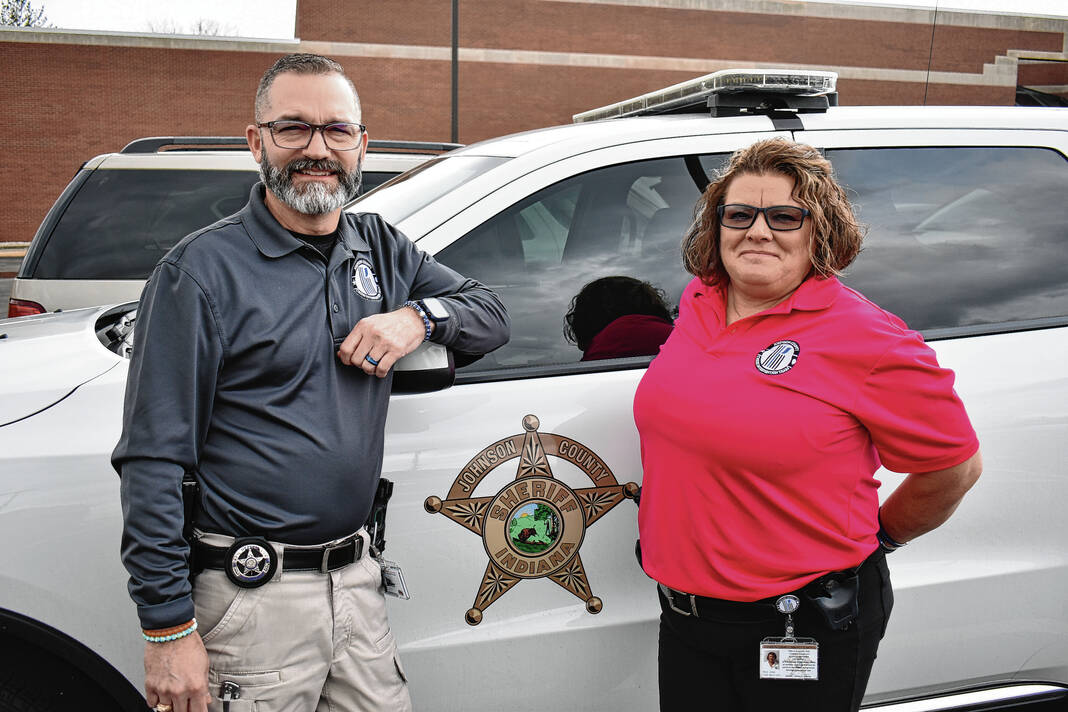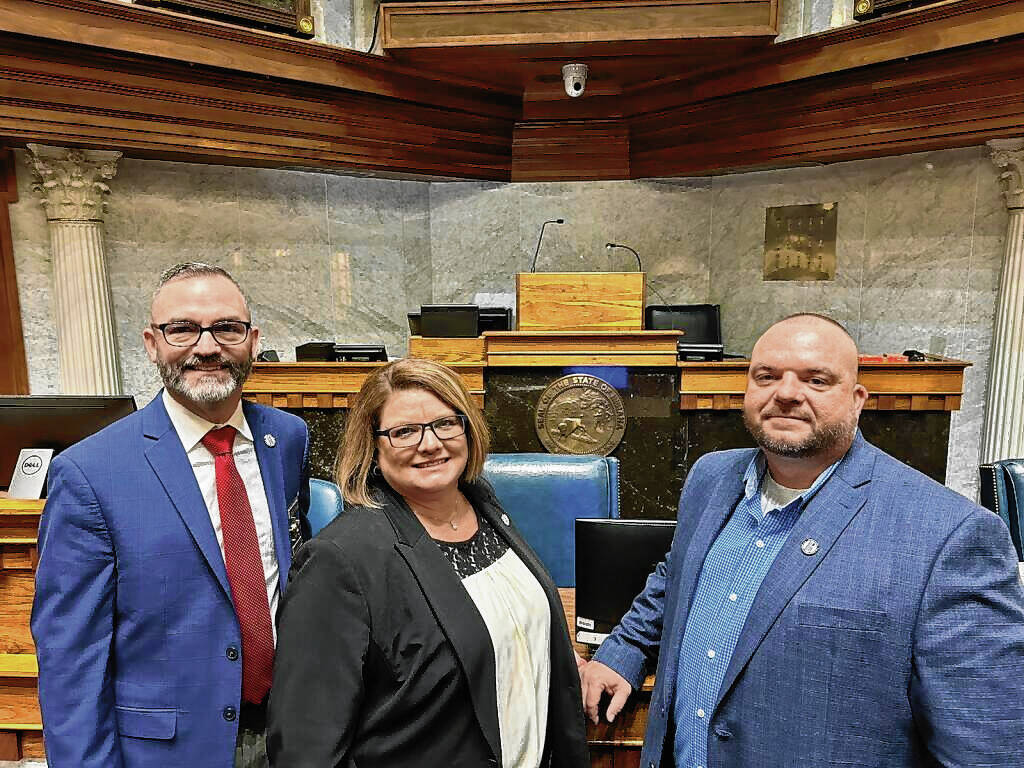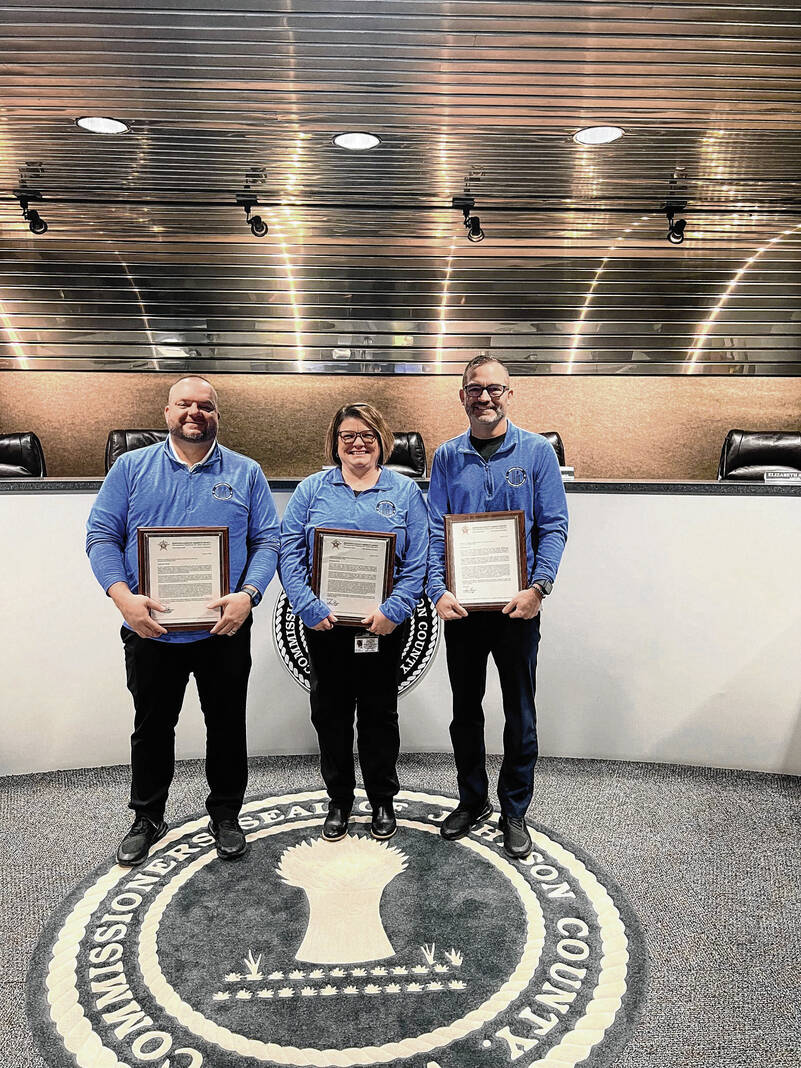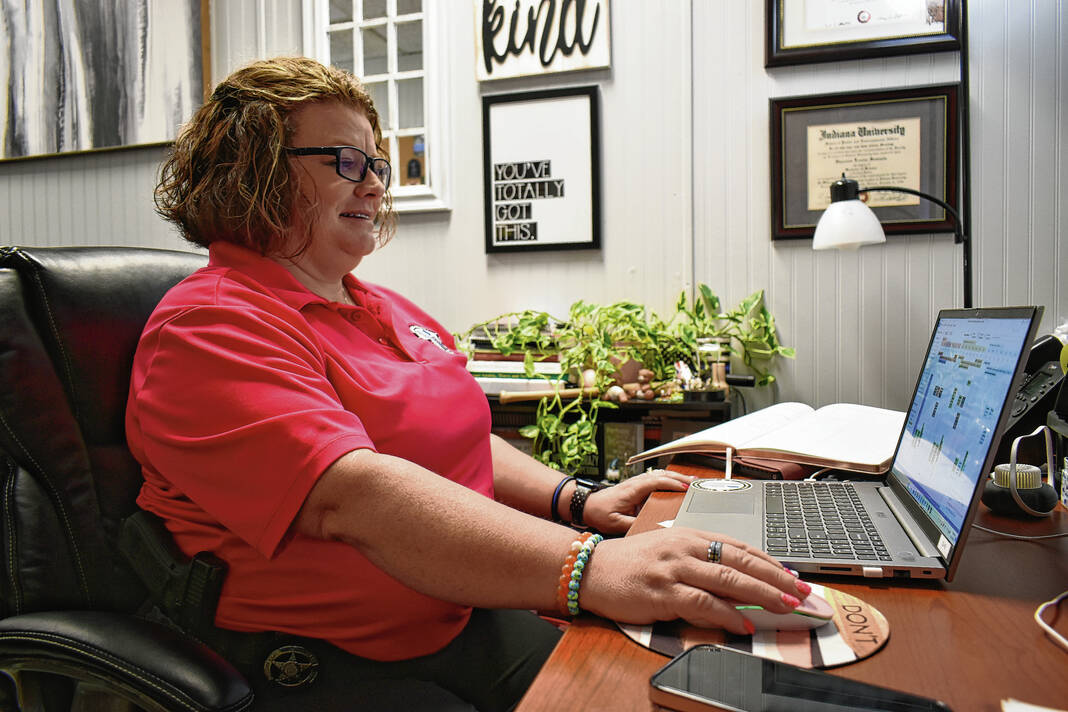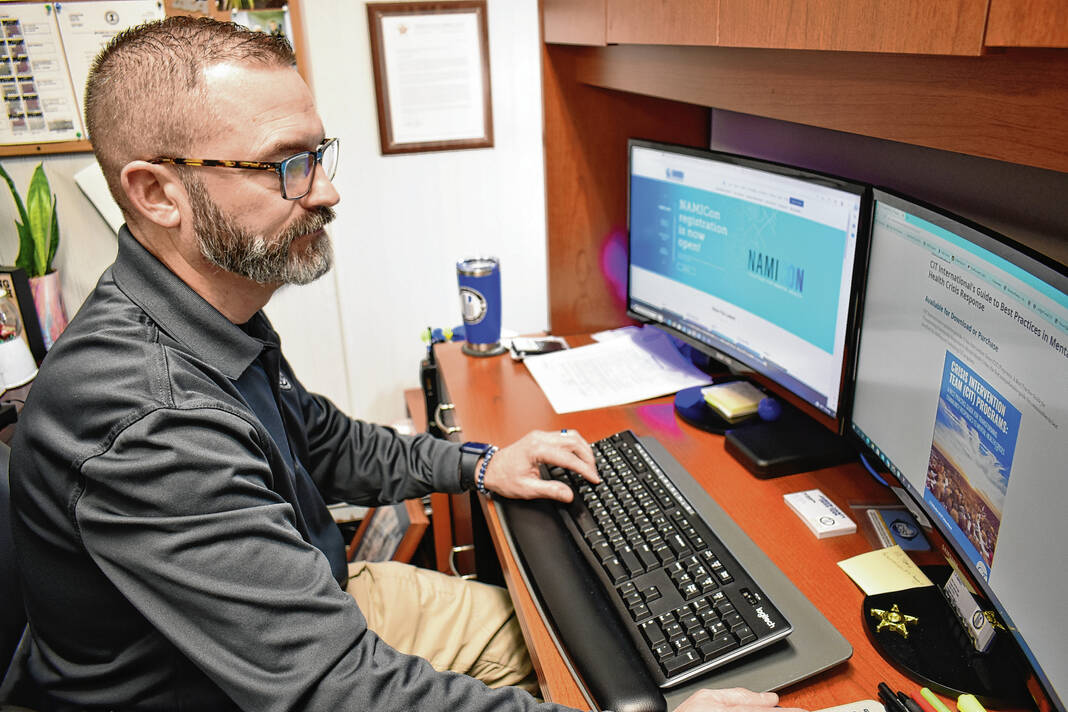The calls can widely vary for crisis intervention deputies.
It could be mental illness, a suicide, a suicide attempt or a juvenile problem. Sometimes it can be overdoses.
Whenever the three crisis intervention deputies at the Johnson County Sheriff’s Office are asked to respond to these calls, they know exactly what they need to do to help these individuals in need.
“If we respond on a call, we will get there, help the officer that responds as well, evaluate the call to see what needs to be done with the individual we’re responding on,” said Jim Engemark, crisis intervention deputy.
Sometimes they get the individual connected to mental health services. Other times they may need to take them to the hospital and have them placed on immediate detention because there are concerns the individual may harm themselves or others, Engemark said.
The calls have taken up to eight hours to resolve, he said.
The deputies work hand-in-hand with Adult & Child Health, which has a 24-hour crisis team. They’ll respond to these scenes as well, he said.
“We will get a licensed social worker to the scene with us and help us through if they need to be evaluated on the scene,” Engemark said. “They’ll evaluate them and determine what we need to do with them at that point.”
Last year, the deputies responded to 246 calls. So far this year, they’ve responded to 56, data provided by the sheriff’s office shows.
Crisis intervention training
Engemark, along with his colleagues Chad Poynter and Shannon Chambers have been full-time crisis intervention deputies for mental health calls since August. However, they had been doing the job for months earlier on top of their previous responsibilities at both the sheriff’s office and Johnson County Court Services.
Chambers’ time is split between the sheriff’s office and court services, while Engemark and Poynter are dedicated to the sheriff’s office.
Their positions are part of the county’s Crisis Intervention Team program. Crisis Intervention Team, or CIT, is a partnership between law enforcement and mental health professionals to help people with mental disorders and/or addictions access the treatment they need in a crisis, rather than place them in the criminal justice system.
The origins of the program date back to 2019, when Sheriff Duane Burgess and Court Services Director and Chief Probation Officer Angela Morris met and discussed creating a program, with the ultimate goal of having all law enforcement officers in the county trained through it. Formal classes have been ongoing for the last year and a half, with Chambers, Engemark, Poynter and Juvenile Community Corrections Assistant Director Damon Cox leading them.
In 2021, 47 people took part in the CIT classes and in 2022, the number jumped to 138. So far this year, 107 officers have taken part or are enrolled in the class, according to data provided by the sheriff’s office.
The training is mandatory for sheriff’s deputies and jail officers, with the goal of having everyone trained on CIT. It was also recently made mandatory for all Greenwood Police officers, Engemark said.
All of the school resource officers for Center Grove have taken CIT, and about 95% of Clark-Pleasant SROs have as well, he said. Many other local law enforcement agencies, including Franklin, have sent officers through CIT too.
A model program
When Sheriff Duane Burgess first introduced the idea of a CIT program to county officials, he said he didn’t want someone else to build the system. He wanted the county to build its own.
“We want to be on the cutting edge in Johnson County,” Burgess said. “We created a great system. People are noticing it; Indiana Supreme Court justices have noticed it.”
Officials have talked about it at judicial meetings with judges from other areas, and they’ve seen the positive effects it has had on Johnson County. Additionally, officers from across the state have come to Johnson County to attend the class, as the county is one of only 16 in Indiana that has a class certified by the National Alliance on Mental Illness, or NAMI.
“They’re wanting to take that back to their counties because these leaders care about their folks, their officers, their public safety workers, and they’re wanting to ensure that they’re doing what’s right,” Burgess said.
Officials have also called the program a model for the state, a designation that makes Engemark and the other deputies proud. Johnson County’s program was modeled after crisis response teams in Indianapolis and San Antonio.
“We feel honored to not only be able to do this job and help people out when they’re in a crisis but we’re also honored to have the cooperation that we have from the sheriff to the judges, to the commissioners to the council and also court services,” Engemark said.
The crisis intervention deputies have also been visiting different agencies across the state, like recovery centers and mental health facilities, so they can get a better feel of what those places are like. By learning more about the facilities and what they offer, they can provide more resources and options to the people who need them, Engemark said.
More focus on help
CIT has helped people having a mental health crisis get access to the services they need. In the past, if there was a person with a mental health issue and officers didn’t know what to do, they would take them to jail, said Shannon Chambers, crisis intervention deputy.
Now the conversation has shifted to getting them help and services so the person can get stabilized and become productive, she said.
The crisis intervention deputies have also noticed a decrease in the number of repeated calls involving the same individuals, as they can do follow-ups and point them toward help and other resources, Engemark said.
“Of course, we’re not 100% getting that done,” he said. “But we’ve seen a huge increase in getting those numbers to come down because of us being able to focus more on getting them the help they need.”
The stigma surrounding mental health is starting to break because people are realizing help is available and because many counties, along with the state, are focused on mental illness, Engemark said. It just needs to break further.
“We just hope that people in the community understand that the stigma needs to be broken so that we can truly get our clients the help that they need,” he said.
Chambers wants people to know it’s OK for people to call and ask for help. It doesn’t have to be a crime for someone to call the sheriff’s office, she said.
People in crisis situations should call 988, the Suicide and Crisis Lifeline. At the call center, the call will get forwarded to whoever can best help them, Engemark said.
“But, of course, they can still call the sheriff’s office or 911 as well, if it’s a true crisis/emergency,” he said.


